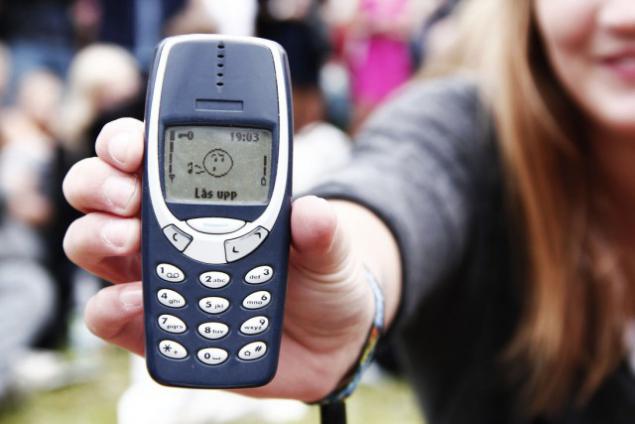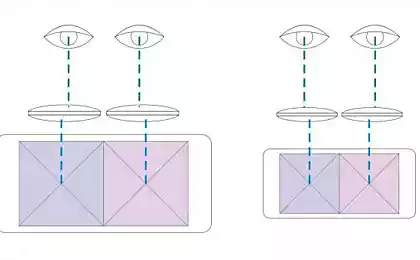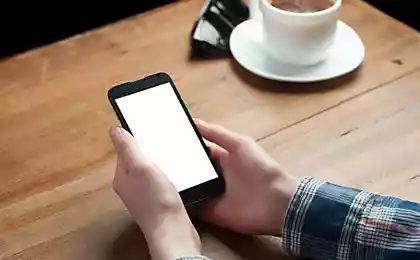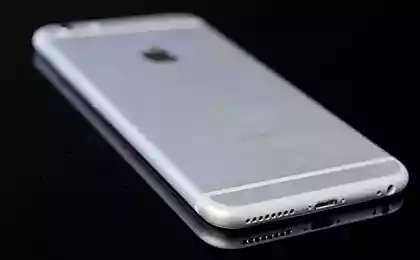637
"I do not have a smartphone ': why ordinary mobile phones are in fashion again
Life without narcissism, anxiety and nevrozaVesnoy this year in several institutions throughout the world culminated in studies related to the level of popularity of smartphones and psychological dependence on them. Scientists from the Institute for Media Studies in Tokyo found that people here have started to abandon the "smart devices" in favor of ordinary mobile phones, and their colleagues from the UK and US have found that excessive use of smartphone promotes narcissism, neurosis and anxiety disorders. Universities around the world are already developing programs to encourage and restriction measures, which allow to distract students from the phone during lessons.

Points for blocking: both universities and schools compete for your attention uchaschihsyaSmartfony times are so dear to us that we are willing to truly uphold and enforce the need to use them. "Maybe I am a member of the sect, but a sect of those who love quality! - Assure the art lovers with an iOS. - I'm just playing on your phone, when I go to the toilet. And playing in the subway. And I need a camera and WhatsApp. And work is useful. " Yet these people can not answer the question, whether they go to the toilet without your smartphone.
The problem of dependence on technology users face today around the world. Specialists of the Institute of Information Policy of the Ministry of Internal Affairs of Japan in 2013 estimated that the average weekday, young people here have used a smartphone 116, 9 minutes (almost two hours), and on weekends - 179, 2 minutes (nearly three hours - more than fifth of waking hours). Today, those numbers have grown - now the device can offer a person more pleasant and useful functions.
In the academic environment, especially in the universities, all this causes concern. In April 2015 the rector of the University of Shinshu (Japan) Yamadzava Kiet urged new students to use smart phones less. "What you choose: the rejection of smartphones or the rejection of the university? - Yamadzava said, speaking in front of two thousand freshmen. - It's the bane of intelligence, personality, and ability to create. It is necessary to disable the smartphone and read books, talk with friends and think for themselves. In our university students learn creative, which themselves reflect on the nature of things and act, trying his best ».
At the University of Pennsylvania and the University of California (USA) leadership is also struggling with the excessive use of "smart gadgets." Here, students can get discounts at the bookstore, and complimentary sweets in the cafeteria if disconnect smartphones. Each student can install the application on your device Pocket Points, which detects when a gadget is on the campus, and determines whether it is locked. One point is awarded for every 20 minutes of "downtime"; 10 points can receive a 15% discount at the local bookstore, and 15 points - two large cookie.
In schools, Seoul (South Korea) students are required to install the application on smartphones iSmartKeeper, which provides teachers with access to remote devices and allows you to partially block their work in the classroom. The program allows you to block access to the service messages, games, and social networks, leaving only the necessary functions for classes. Parents may also wish to access the smartphones of their children, so they carried with them a lot of time.
Read more on the website «T & P»
via theoryandpractice.ru/posts/10623-net-smartfona

Points for blocking: both universities and schools compete for your attention uchaschihsyaSmartfony times are so dear to us that we are willing to truly uphold and enforce the need to use them. "Maybe I am a member of the sect, but a sect of those who love quality! - Assure the art lovers with an iOS. - I'm just playing on your phone, when I go to the toilet. And playing in the subway. And I need a camera and WhatsApp. And work is useful. " Yet these people can not answer the question, whether they go to the toilet without your smartphone.
The problem of dependence on technology users face today around the world. Specialists of the Institute of Information Policy of the Ministry of Internal Affairs of Japan in 2013 estimated that the average weekday, young people here have used a smartphone 116, 9 minutes (almost two hours), and on weekends - 179, 2 minutes (nearly three hours - more than fifth of waking hours). Today, those numbers have grown - now the device can offer a person more pleasant and useful functions.
In the academic environment, especially in the universities, all this causes concern. In April 2015 the rector of the University of Shinshu (Japan) Yamadzava Kiet urged new students to use smart phones less. "What you choose: the rejection of smartphones or the rejection of the university? - Yamadzava said, speaking in front of two thousand freshmen. - It's the bane of intelligence, personality, and ability to create. It is necessary to disable the smartphone and read books, talk with friends and think for themselves. In our university students learn creative, which themselves reflect on the nature of things and act, trying his best ».
At the University of Pennsylvania and the University of California (USA) leadership is also struggling with the excessive use of "smart gadgets." Here, students can get discounts at the bookstore, and complimentary sweets in the cafeteria if disconnect smartphones. Each student can install the application on your device Pocket Points, which detects when a gadget is on the campus, and determines whether it is locked. One point is awarded for every 20 minutes of "downtime"; 10 points can receive a 15% discount at the local bookstore, and 15 points - two large cookie.
In schools, Seoul (South Korea) students are required to install the application on smartphones iSmartKeeper, which provides teachers with access to remote devices and allows you to partially block their work in the classroom. The program allows you to block access to the service messages, games, and social networks, leaving only the necessary functions for classes. Parents may also wish to access the smartphones of their children, so they carried with them a lot of time.
Read more on the website «T & P»
via theoryandpractice.ru/posts/10623-net-smartfona
The last living deity on the planet
"Now, I eat whatever I want": the secrets of the power of the bestselling book by David Yang























